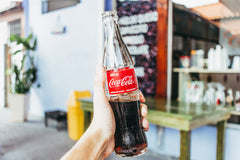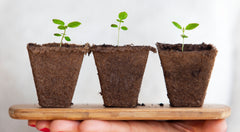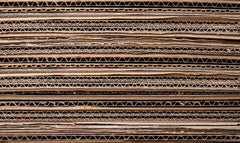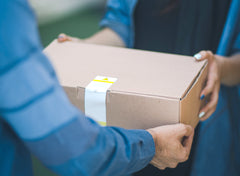As we move forward into the future, business leaders are charged with an important job — pioneering efforts to make our planet a cleaner and safer place for generations to come.
More and more businesses are turning to biodegradable packaging. With package materials making up for roughly a third of the waste found in dumps and 65% of what individual households throw out, it’s no wonder consumers want companies to invest in more eco-friendly containers for their products. Biodegradable packaging can be broken down into natural materials without oxygen, which helps conserve energy.
If you’re looking for ways your business can make a difference, here are five biodegradable packaging options you can use.
1. Packaging Made From Plants

If you’ve had a Coca-Cola product lately, you may have noticed its plant-packaging emblem. Plant-based bioplastics have been on the rise because they are compostable and retain the benefits of traditional plastic. Using plants as a source for your packaging is not only safer on the planet, but it is better for your health.
Several different natural plant-based sources can be used to create biodegradable packages, including mushrooms, cornstarch, sugarcane and coconut husks.
2. Packaging You Can Eat

Edible packaging? You heard that right.
Depending on the product you’re selling, edible packages could be the way to go. Such innovation allows you to consume the packaging along with the edible goods.
Some excellent examples include seaweed-based materials, paper wrapping made from potatoes, pods that dissolve in water and a film wrapper made from casein–a milk protein.
3. Packaging You Can Plant

What if you could throw away packaging with a clean conscience?
Plantable packages were created with such a goal in mind. This form of biodegradable packaging is made with seeds embedded in the material, allowing consumers to bury the product container in the ground. Instead of creating more harmful waste, a plant is born. This innovative idea could change the way we look at discarding packages.
4. Biodegradable Packing Material

Packaging is not restricted to the containers in which our goods are distributed. Packing materials should be considered as well when discussing sustainability, as they are just as harmful.
Fortunately, there are viable alternatives like biodegradable air peanuts or recyclable and biodegradable air pillows. Corrugated cardboard can be used in place of bubble wrap by taking discarded cardboard and cutting it in such a way that it gains cushioning properties akin to bubble wrap.
5. Cardboard

A tried and true classic, corrugated cardboard has been used for shipping and handling since 1871, and there’s a reason it’s still a top pick today. Cardboard is not only durable, but it’s also viewed among the most organic, ethical and eco-friendly options out there. Even if it doesn’t make the recycling bin, it is biodegradable and will break down.
This form of packaging is highly versatile, accommodating numerous shapes and sizes. No matter what product you have, you can rest easy knowing cardboard will always be there for you.
Most cardboard packaging is over 80% biodegradable. But to truly maximize your contribution to protecting the environment, why not go all the way?
We offer custom shipping boxes made from 100% recycled materials.
This article was written by our content freelancer, Sam Zell-Breier
